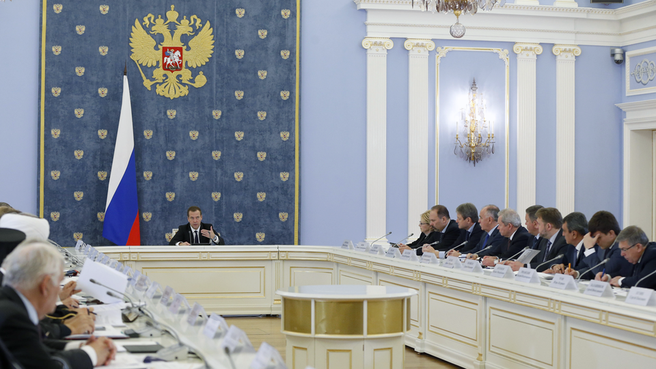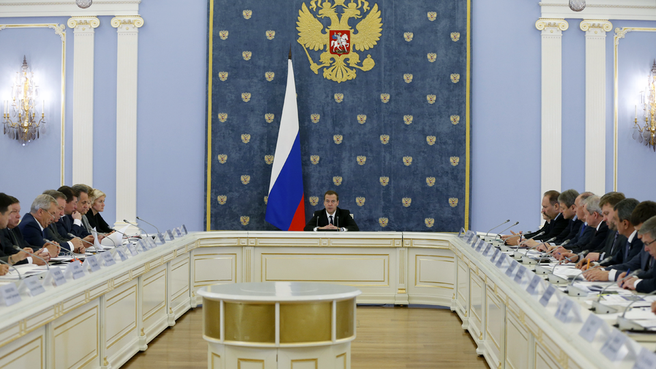Agenda: measures to prevent the proliferation of HIV infection; preliminary results of Russia’s Year of Fighting Cardiovascular Diseases.
Dmitry Medvedev’s opening remarks:
This meeting of the Government Commission on Healthcare is attended not only by heads of government agencies and officials but also representatives of public and religious organisations.
Diseases caused by the human immunodeficiency virus are a most serious global problem that confronts all countries without exception. Russia, accordingly, has all these problems as well. The number of HIV-infected people is growing by 10 percent a year on average, that is, by almost 10,000 people.
This group primarily includes young and active people between the ages of 20 and 50. The situation is particularly grave in a number of regions which, among other things, form a corridor for international drug trafficking (Urals and Siberia).
HIV is not only a medical problem, but a social one as well. I have instructed the Healthcare Ministry to draft a state strategy for combating the spread of HIV by November of next year.
This year marks ten years since we launched the national Health project. For the first time in the history of Russian healthcare, it has put the prevention, identification and treatment of HIV and the accompanying viral hepatitis into a separate category. This made it possible to give an impetus to this work and save many people.
This country has a system for preventing and combating AIDS. It is an obvious success that over 98 percent, or practically all babies born by HIV-infected mothers, are healthy.
We should focus our efforts primarily on groups vulnerable to infection, including drug addicts. Today we are studying the possibility of transitioning to centralised state procurement of medicines for treating the HIV-infection and the accompanying TB and viral hepatitis. This will hopefully improve their delivery to patients.
Humanity has yet to invent a 100 percent efficient HIV vaccine, but there are useful retardants. We ought to be more active in pursuing our own R&D for the production of these medicines. This should become a priority in the context of our federal targeted programme for the development of the pharmaceutical and medical industry.
We should raise the general level of people’s awareness in this area, with an emphasis on a large-scale explanatory effort involving the public, the media and NGOs, particularly among high-school students and young people.
There are certain stereotypes operating with regard to HIV-infected people. But they are citizens of our country like anyone else and should not be outcasts. There are socially oriented NGOs and volunteers in this area. Their best practices could be put to use, while government agencies should learn how to cooperate with them.
Now let us discuss the Year of Fighting Cardiovascular Diseases. Regrettably, Russia remains a leader in this indicator, and holding such a Year is not just a formality. Our objective is not only to highlight this problem but also to consolidate the positive trend that has emerged along with an increase in life expectancy in this country.
Physical fitness and sport are contributing significantly to the fight against these diseases. There are increasingly more people engaging in sport. Today they make up almost one-third of Russians. These indices have doubled over the last five to seven years.
We also proceed from the assumption that this Year will create more effective mechanisms, including preventive and information mechanisms, which we could develop further and spread to the regions.
The important thing is that the fight against cardiovascular diseases should not be confined to this Year. Rather, it should become a permanent, long-term effort that would yield the necessary results.












